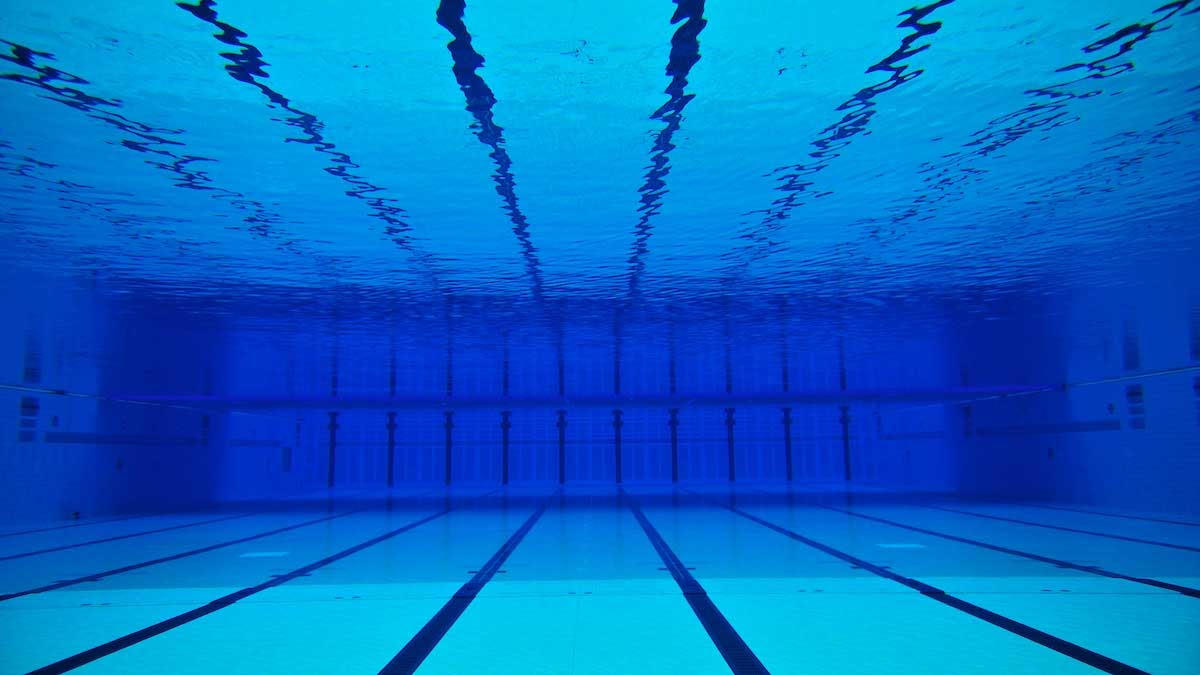Considering that swimming and using pools has become one of the healthy recreational activities, it is better to learn more about this hobby. Because just as swimming can be beneficial, not paying attention to some simple guidelines can lead to unpleasant consequences.
Ear infections, urinary tract infections, skin irritations, and respiratory issues are among the common problems that can arise from swimming.

Ear Infections
Swimmer's ear is an infection in the outer ear canal that does not spread from person to person and occurs when water stays in the ear canal for a prolonged period, causing bacteria to grow and create problems.
If you or your child are prone to swimmer's ear, use ear protection while swimming. Using ear drops can also prevent swimmer's ear. After swimming, drain the water from the ear canal and dry your ears with a towel. If you feel that you cannot remove the water from your ear, contact your doctor. Swimmer's ear is usually treated with antibiotic ear drops.
Skin Irritation
Jacuzzi rashes or folliculitis, which usually appear after using hot tubs, can also appear after swimming in pools with slightly warmer water. The bacterium Pseudomonas aeruginosa causes these rashes and often appears on areas of skin covered by clothing. Therefore, sitting for hours in wet swimwear can significantly worsen the situation.
If this condition occurs, consult your doctor, who may prescribe an anti-itch and antibacterial cream.
Urinary Tract Infections
Urinary tract infections occur when bacteria pass through the urinary tract and are transferred into the bladder through urine. Bacteria can be caused by an infected pool, not showering after swimming, or sitting in wet swimwear.
Talk to your doctor to get better with an antibiotic or an antifungal medication.
Respiratory Issues
Legionnaire's disease is a type of pneumonia caused by Legionella bacteria. This disease can be contracted from pools or inhaling steam from hot tubs and can develop even 2 days to 2 weeks after exposure to the bacteria. The disease is more common in people over 50, smokers, and those with weakened immune systems.
If you experience respiratory problems after being in a pool, see a doctor immediately.
How to Enjoy Swimming Despite the Risk of These Diseases?
There are ways to protect yourself from pool bacteria:
1- Take a shower for at least 60 seconds before entering the pool and scrub afterwards.
Just one swimmer can introduce billions of microbial sources, including fecal particles, into the water. The good news is that washing for one minute is enough to remove many microbes, and using soap after swimming can help eliminate the oils on your skin from a dirty pool.
2- If you have had diarrhea in the past two weeks, avoid swimming.
Since fecal particles in the body can enter the water, microbes like Cryptosporidium, which are spread through contaminated stool, can enter the water. The Crypto parasite can live in pools with sufficient chlorine levels for up to 10 days.
3- Do not swallow water.
Even if you don’t intentionally swallow water, you are likely swallowing more than you think. In just 45 minutes of swimming, an adult will consume an average of one tablespoon of pool water, and children consume more than twice that amount. So, try to minimize the amount of water that enters your mouth. Also, teach children that pool water is not drinkable, and they should close their mouth and nose when diving underwater.
4- Bring a portable test strip.
If the chlorine or pH level of the pool is not tested, there is a risk of spreading microbes. If you are unsure of the cleanliness of the pool, test it yourself. Pezeshkbook recommends using portable test strips to check the suitability of the pool before diving in.
5- The pool should not have a strong smell.
Contrary to popular belief, the strong smell is not an indicator that the pool is clean. When microbes, pollutants, and body cells mix with chlorine in pools, the result is the formation of strong chloramines that can enter the air and cause a chemical smell. Many people mistake this smell for a well-chlorinated pool.
So, if the pool you're entering has a chemical smell or irritates your eyes, it could indicate that it is excessively dirty. Try to avoid it.
Which Pool Should You Swim In?
It is better to perform a quick check of the health status of the pool before going to the swimming location to protect yourself and your loved ones from its adverse effects. You can always use your testing kits to measure the chlorine levels and pH of the pool.












Our Customers' Comments
No comments registered